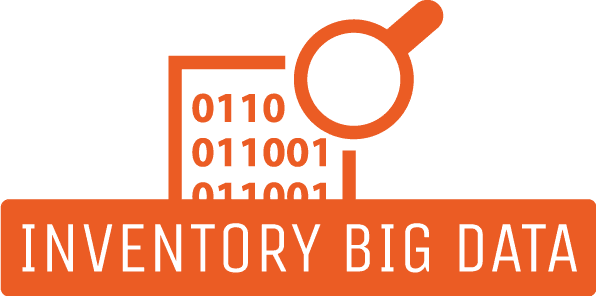Job description : Quality Controller
Description
As a Quality Controller, Morgan is responsible for ensuring that the products or services produced by the company meet certain quality standards. This involves conducting regular inspections, identifying any defects or issues, and working with production teams to address and correct them. Morgan may also develop and implement quality control processes and procedures, monitor production processes, and analyze data to identify areas for improvement. Ultimately, Morgan’s job is to help ensure that the company’s products or services meet customer expectations and comply with relevant regulations and standards.
Job description:
The Quality Controller will be responsible for ensuring the quality of the products produced by the industrial company. The Quality Controller will monitor and inspect all stages of the manufacturing process to ensure that the products meet the company’s quality standards. They will work closely with production teams and other stakeholders to identify areas for improvement and to develop and implement quality control measures.
Key Responsibilities:
- Conduct quality control checks on raw materials, in-process materials, and finished products to ensure they meet the company’s quality standards.
- Perform visual and physical inspections of products and record the results of the inspections.
- Identify and report any deviations from the quality standards and work with production teams to address the issues.
- Develop and maintain quality control documentation, including inspection checklists and testing procedures.
- Collaborate with other stakeholders, such as production teams, engineering, and quality assurance, to implement and improve quality control processes.
- Investigate and resolve customer complaints related to product quality.
- Train production teams on quality control measures and ensure that they adhere to the company’s quality standards.
Qualifications:
- Bachelor’s degree in a relevant field, such as engineering, quality management, or industrial technology.
- Previous experience in quality control, preferably in an industrial manufacturing setting.
- Strong attention to detail and ability to identify and report deviations from quality standards.
- Excellent communication and interpersonal skills to work with production teams and other stakeholders.
- Familiarity with quality control documentation and procedures.
- Experience with quality control tools and techniques, such as statistical process control and root cause analysis.
- Knowledge of relevant industry standards and regulations.
Physical Requirements:
- Ability to stand for long periods and perform physical inspections of products.
- Ability to lift and move products weighing up to 50 pounds.
This job description is intended to provide an overview of the responsibilities and qualifications required for a Quality Controller in an industrial company. Actual job responsibilities and qualifications may vary depending on the specific company and industry.
Some training options to strengthen skills for a Quality Controller in an industrial setting. Here are some suggestions:
- Six Sigma Certification: Six Sigma is a data-driven methodology used to improve business processes by identifying and eliminating defects. As a Quality Controller, having Six Sigma certification will give you a deeper understanding of quality control principles and tools. You can find online courses or in-person training programs that offer Six Sigma certification.
- Lean Manufacturing: Lean Manufacturing is a set of principles and practices that aim to reduce waste and improve efficiency in manufacturing processes. As a Quality Controller, understanding Lean Manufacturing can help you identify areas for improvement in your company’s manufacturing processes. You can find online courses or in-person training programs that offer Lean Manufacturing training.
- Root Cause Analysis: Root Cause Analysis is a process used to identify the underlying causes of problems or defects. As a Quality Controller, understanding how to conduct Root Cause Analysis will help you identify the root causes of quality issues and implement effective solutions. You can find online courses or in-person training programs that offer Root Cause Analysis training.
- Statistical Process Control: Statistical Process Control is a set of tools and techniques used to monitor and control processes to ensure quality. As a Quality Controller, understanding Statistical Process Control will help you analyze data and identify trends in quality control processes. You can find online courses or in-person training programs that offer Statistical Process Control training.
- Quality Management Systems: Quality Management Systems are a set of processes and procedures used to ensure quality in products and services. As a Quality Controller, understanding Quality Management Systems will help you ensure that your company’s quality control processes are in line with industry standards. You can find online courses or in-person training programs that offer Quality Management Systems training.
Overall, these training options can help you strengthen your skills as a Quality Controller and enhance your career opportunities in the industrial sector.
Interview question
- What experience do you have leading technical teams in industrial companies?
As a technical manager, I have extensive experience leading teams of engineers, developers, and other technical professionals in various industrial settings. This includes overseeing project timelines, developing and implementing technical strategies, and ensuring the successful completion of projects.
- What are some of the biggest challenges you have faced in managing technical projects?
Some of the biggest challenges I have faced include managing tight project timelines, ensuring effective communication between team members, and addressing unexpected technical issues that arise during a project.
- How do you approach managing technical teams with different skill levels and backgrounds?
I believe that it is important to understand the strengths and weaknesses of each team member and to assign tasks accordingly. I also encourage open communication and provide training opportunities to help team members develop their skills.
- How do you ensure that projects are delivered on time and within budget?
To ensure projects are delivered on time and within budget, I establish clear project goals and timelines, regularly monitor progress, and make adjustments as needed. I also work closely with the finance team to manage project expenses and ensure that we stay within budget.
- How do you stay current with the latest industry trends and technology developments?
I stay current with the latest industry trends and technology developments by attending industry conferences, reading relevant publications, and networking with other professionals in the field.
- What is your approach to managing risk in technical projects?
My approach to managing risk involves identifying potential risks early on and developing strategies to mitigate them. I also ensure that team members are aware of potential risks and are prepared to address them if they arise.
- How do you ensure that technical solutions meet business requirements?
To ensure that technical solutions meet business requirements, I work closely with stakeholders to understand their needs and goals. I then develop technical solutions that align with those requirements and regularly communicate with stakeholders to ensure that their needs are being met.
- How do you foster a culture of innovation within a technical team?
To foster a culture of innovation, I encourage team members to share ideas and collaborate on new projects. I also provide opportunities for professional development and encourage team members to explore new technologies and approaches to problem-solving.
- What is your experience with implementing quality assurance processes?
As a technical manager, I have experience implementing quality assurance processes that ensure the delivery of high-quality products and services. This includes developing testing procedures, conducting regular reviews, and implementing continuous improvement processes.
- How do you approach managing conflicts within a technical team?
When conflicts arise within a technical team, I encourage open communication and work with team members to find mutually acceptable solutions. I also establish clear communication protocols and ensure that team members are aware of the importance of working collaboratively to achieve project goals.
Additional information
| Human Ressource |
|---|




